As Nationalist Party leader Adrian Delia today marks his first anniversary as the party's leader, he launches a heartfelt appeal to those quarters of the party that have not yet warmed up to him: "Come and talk, debate, work, discuss, and understand that after we go through everything we have to realise that we have so much in common and so little that divides us.
"But what we have in common is so strong and it is so important to remove our adversary for the good of our country, that we will resolve these differences. We have one direction, we come from the same party, the same values, the same history."
Delia, in a wide-ranging interview marking his first year at the party's helm, says of any dissenters within the party: "It's completely insane to believe that all of us will think in the same manner about everything. Not even twins do that.
"But then you have to see what your priorities are. If we understand that the list of priorities and values are common, and that there are peripherals that we might disagree upon, we can stand together.
"It's a mosaic that we need to build but we need to do this together.
"My invitation? Do you really love your country? Do you really believe Labour is doing a good job? If not, the Nationalist Party - one strong, united Nationalist Party - is the only solution, period."
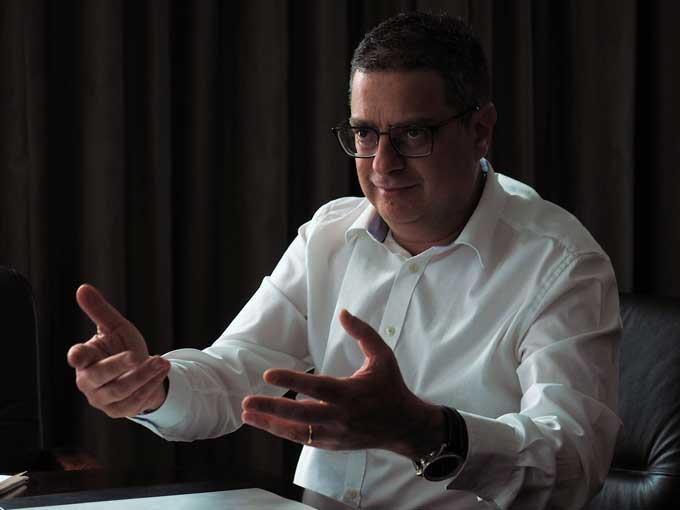
The Simon Busuttil problem
That internal party discord reached new levels recently in the wake of the Egrant inquiry, with former leader Simon Busuttil having refused Delia's suggestion to step down.
Delia explains, "Simon Busuttil contributed massively to Maltese politics, he made a personal sacrifice to leave a comfortable position in Brussels to contribute to the local scene. But, numbers showed, he failed. He took responsibility, which very few people do, and decided to stay on as a backbencher. That is also unprecedented in Malta, as former leaders usually bow out.
"So I found myself in this situation. I am a person who does not really feel shackled just because someone is there or does not agree with everything I do. Simon Busuttil has the liberty to work if he is to toe the party line, if he wants to work less he can do so as well.
"I think it is time to stop concentrating on Simon Busuttil and to start concentrating on how to bring down this corrupt government. That is the major issue that is now afflicting the reputation of our country, and which will affect the country for years to come if we do not address it seriously."
Asked if he has met with Busuttil since the very public spat, Delia says, "Actually not yet formally, but there are absolutely no closed doors on my part. I will go to meet and speak with anyone.
"But I think Simon Busuttil needs to see what he wants and how he wants to contribute to the PN."
Most are of the opinion that while Delia has control of the party's hierarchy and internal structures, but that the parliamentary group is another matter altogether. That, in Delia's eyes, is not such a bad thing: "We are not a totalitarian party. I do not always have the parliamentary group behind me. If that was the case I would think that I was in the wrong party. I appreciate people who debate and disagree with me, and sometimes they convince me to change my mind.
"This is a healthy process. I do, however, expect that while on issues of ethics and morality I would give a free vote to my MPs, as have done, but then when the party decides on something I expect, because there is collective responsibility, that everyone toes the line."
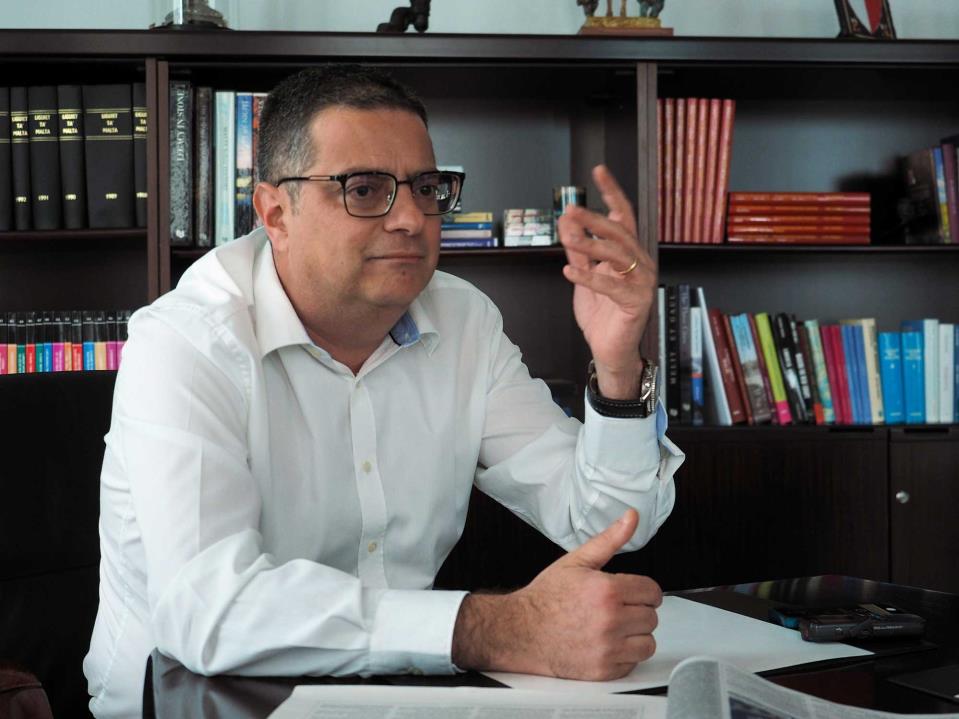
Labour: the preserve of the privileged
Another accusation doing the rounds is that the new leader is simply turning the Nationalist Party into Labour V2.0, a suggestion he takes no small exception to: "Absolutely not. It is a question of values. What does Labour stand for? Labour has lost its social soul. Labour was once the party of the workers and of the poor. It is no longer.
"Labour has become the preserve of the privileged.
"I think Joseph Muscat realised that being a Socialist will never win him an election, like it never did for 25 years before that. He did not care, he threw it away, and did not even need to call it 'Labour' anymore. He now calls it a 'Movement'.
"Labour stands for nothing, we stand for values, principles, tolerance, democracy, listening to the people - we stand for the common good."
The world's first carbon neutral country?
Delia has particularly strong words when it comes to the environment, insisting that the PN will make the environment "no longer an impediment to the economy, but an economic sector in itself.
"The environment has been kicked in the face, it has been beaten to a pulp by Labour.
"I think the government is actually doing its best to destroy the environment and farming so as to actually place its cosmopolitan buildings everywhere. I do not agree with that at all. I think we have little left and we have an obligation to ourselves, to our children and to the generations to come to not only conserve what we have but to start growing it slowly again.
"The environment has to be at the centre of every decision that we take - education, health infrastructure, energy - it has to be at the centre of every decision the country takes.
"I believe that we can be the first country in the world not to keep on eating up ODZ to build petrol stations, but instead be the first country without carbon-fuelled cars.
"We can do that. It is a question of political will alone, full stop.
"We can strive to be the first carbon-neutral country in the world. It is ambitious, but I believe we can do it. We say we do not have resources, but we do - the wind, sun and sea. These are the most potent renewable energy sources that exist in the world today. Technology is moving so fast that while in the past such sources were not able to give us the amount of energy we need as a country in the past. Today it can."
"We can have offshore structures harnessing wind, wave and solar energy but it seems there is no political will to do so.
"We have the fourth-most polluted air in the EU and are we happy that our kids are running around in it? And we want to keep on building, adding more cars and more people? At this rate our grandchildren are all going to be wearing face masks, and that is a sad prospect.
"The PN will put the environment at the top of its priorities and at the centre of economic generation, rather than making it a hurdle to economic development.
"Let me be clear, I am not telling anyone in business that because we are in favour of the that business is dead. No, it is the other way around. We can actually make the environment a philosophy that becomes an economic sector in itself. You just need to diversify, educate, and understand the technologies and opportunities of the future - and then people can make their money there.
"We need a complete rethink: rather than monetary terms, quality of life; rather than how much money we have in the bank, how happy we are; rather than a budget surplus, ensure that we are safe happy and green again.
"We already had much of this, and we threw it away."

Economic success: who is reaping the rewards?
Is the man in the street really reaping the rewards of this supposed great economic success being achieved by the government, budget surplus and all?
"I think we have an amazing government insofar as marketing is concerned. I just give it to him. So the government creates a feel good factor, says we have surplus, says the economy is doing great, and if people believe that everyone else is doing well, very few will have the courage tpo say that only they are not doing well.
"Speaking as a father with kids, if your kids are going three times a week in summer maybe, how much do you give them for the cinema and a snack €10, €20? Which parent will tell their kid they can't go out because they don't have €10 to give them? But this all adds up and it becomes very difficult to tell your children that you can't afford to get them the latest gadget device, or sneakers.
"So what happens is exactly what happened in the United States - they start borrowing and start expecting to live beyond their means.
"And on the other hand you have the construction industry, the largest and fastest growing sector, which has grown by around 30 per cent in the last couple years. Do you know how much the per capita earnings of the workers in that industry have grown - from between 0.5 per cent and one per cent.
"This is not only a Maltese problem. In any economy that is overheating, the rich get richer, and I'm very happy with that, but the poor get poorer faster.
"But people believe these economic benefits are eventually going to trickle down to them because every once in a while the government sends out a €40 check, and it keeps people happy.
"This is dangerous for society. I think we are raising a generation of kids with a sense of entitlement. My father's generation was post-war frugal, mine was about educating our kids so they can make their way in life. Today we are going to an extreme: an expectation of entitlement, and that's dangerous.
"And the government is, sadly, promoting this because it wants to keep on this mantra of surplus, surplus, surplus. It is the people who create wealth through their hard work, it is the businesses that invest and the governments that creates poverty - precisely because it is the government's job to harness the wealth being created and to ensure it is spread out in as equitable a manner as possible - not in handouts, but in opportunities, and in creating new educational areas for our children.
"So in to mind we are failing drastically, and at some point we are going to hit a wall because if we have a surplus and we are not investing in capital projects and infrastructural projects now, when will we?
"If when we have a surplus we have 70,000 people on the verge of poverty, and 20,000 cannot afford to buy their next pair of shores, of we have people sleeping in the streets, on pavements, in gardens, at White Rocks and in farms when we are a surplus, what is going to happen when we have a deficit?

A cosmopolitan island?
"The government has actually said that wants Malta to become a cosmopolitan island, but what are the repercussions of that? Are people understanding what this means? Are we all going to be living in apartments?
"What the government is doing is that, because it had been attacked that it would fail economically, the government, to my mind, did the simplest thing: intelligently, it tried to not destroy the major sectors that the Nationalist Party had created over 25 years. I give it to him [Muscat]. But then it just gave out planning applications liberally all over the place.
"It created a boom in the construction industry, a feel good factor, people started spending money, people were working and spending more, it is a consumerist society but it is growing by population, and not by productivity. We are not creating niche areas where executives create knowledge-based industries.
"I want to see investors and executives coming to Malta, with ideas and concepts. The bulk of their workers could then maybe be offshore, but instead the government is looking to import labour. This is backwards - the biggest problem we have is our small size.
Soft on corruption?
When confronted with the suggestion out there that Delia is soft on corruption, he becomes visibly irate, saying: "I think they have not been following what I've been doing.
"First, I have filed a case against Vitals and the government, a €2 billion case which has massive repercussions, personally and on my own steam as a Member of Parliament, to give back to the Maltese people that which belongs to them.
"I am alleging that contract is not only corrupt but it is the epitome of what a government should not be doing - an atrocious deal which gave everything away and got nothing back for the people.
"I want to rescind that deal and give the hospitals back to the people.
"Doing nothing about corruption? I have filed a constitutional case against the Attorney General in an unprecedented judicial process 9for access to the Egrant inquiry] where I allege that the he is breaching the Constitution and my right to freedom of expression as a person who can bring a debate to the general public. This is creating political imbalance.
"If that is not a fight against corruption, tell me what is.
"Every single time there has been an issue under my tenure I have spoken up, I have stood up, I have persevered in court and parliament and I shall keep on doing this every time because I am certain that this government is corrupt and that it will remain being corrupt."
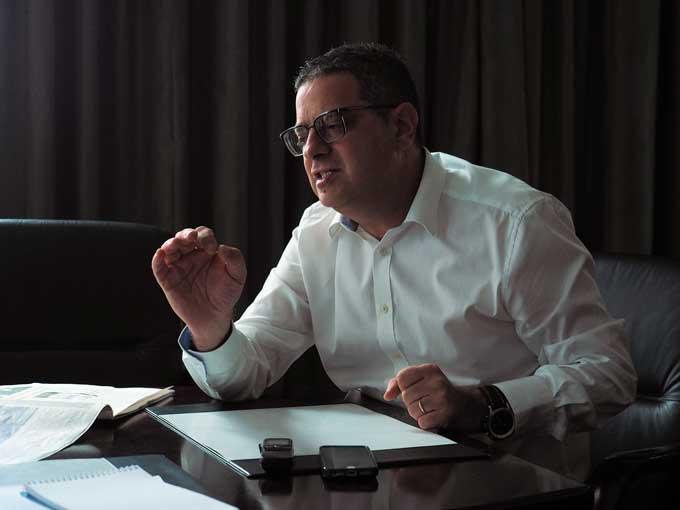
The PN's obligation to change
Delia believes that the country needs to take a step back and take stock of the situation because: "We cannot be continually blinded by the government saying that everything is fine.
"The Nationalist Party, meanwhile, has an obligation to change. It spent 25 years in power, five in opposition, and then it expected it had the right to be in government again.
"I don't think so, the PN has an obligation to take stock of where society is today, to pass through a renaissance and to actually start thinking again. At some point we stopped thinking."
Haven't you done this over the last year?
"The first six months of my tenure was a question of reorganising internal structures and with internal elections, after all it was not only the leader that changed, but all the party's structures.
"As soon as that finished, I had the burden of a financial situation that was considerable. I took a decision that if I found €100 of debt I would not pass on €120. No, my plan is to keep on eating through that debt to reduce it, ideally toward zero. Over 20 years we built debt and over the next 10 years I want to decrease it substantially.
"As soon as that is done, what we are now doing is, sector by sector, not simply criticising but preparing to be able to go before the electorate - in the MEP and local council elections, but more importantly in the general election - to explain our solutions in detail to every single sector of society.
"I can assure you that it will be a dramatic change, it will be revolutionary and it will show people that they can live a better life in a better Malta."
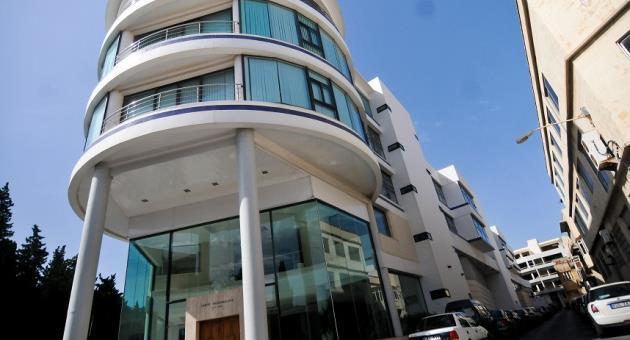
The PN's solutions
Although a general election is still a long way off, Delia has a number of proposals up his sleeve for education, tourism, health and infrastructure.
"In terms of education, first my heart goes out to teachers and educators who have been treated miserably by the government because it does not even treat them as stakeholders in discussions.
"But in my mind, and I say this as a parent, we need to find systems that simply do not classify and pigeonhole children but that identify talents and invests I those talents to give them the sklills for the future.
"We need a complete rethink of how we look at education. Tests and exams that stress out our kids just don't work. Kids learn by doing and experiencing, not by imposition.
In terms of health, he says, "The government would have people believe the health sector is great, it is not. I've been hearing stories from St Vincent de Paule, which are beyond the tendering procedure - human stories of people who need attention and care, of the elderly who are deserve respect and dignity.
"Selling three of our hospitals to someone who we have no clue who they are, with no experience in medicine or health, and in a bidding process in which I am informed there were multinational bidders who had years of experience in the medical sphere.
"And then allowing these nobobys to choose who to bring in in their stead. Is that not suspect?
"When my child is unwell, I would either go to my doctor and they would refer me to a specialist.
"The government simply went to the ironmonger."
"Health Minister Chris Fearne stated when Steward Healthcare came to Malta that, 'This is the real thing', by implication, or specifically, that their predecessors weren't.
On infrastructure, Delia insists he has nothing against high rises as such, as long as they are planned.
"But the government is not planning. If our demographics are saying that in 20 years we are going to have 600,000 or 700,000 people living on these islands, have you heard the government say one single word about more hospitals, schools, roads, or underground infrastructure?
"The government wakes up in the morning and realises it has nowhere to put waste. A week later and it finds a couple of quarries but they are in private hands and deals have to be struck at all costs. Then we decide to start incinerating.
"This is not how you plan for a country.
"I will make this allegation and I will stick to it: the Labour Party in government only plans to win elections, period. It does not plan for our country because it has no interest in it.
"I think planning in a sovereign sphere for less than 30 years is irresponsibly insane. But then again, Muscat was actually honest and has said he is here for only 10 years. And after that, who cares?
"Countries do not work like that. I don't think people or businesses plan their lives for five or ten years, so why would you plan a country for five or ten years?
"In tens of traffic and parking, I will guarantee that within the next four years it will be gridlock and government does not even come to the table to say 'We have a problem, let's discuss'. It's not like half the country that voted Labour in will be driving and the rest won't.
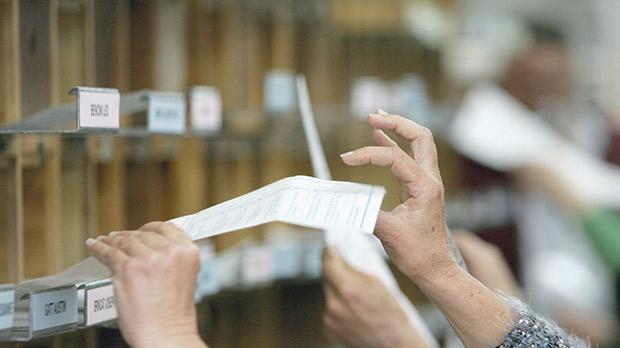
Upcoming elections
Asked if he would step down of the party elects just a single MEP next year, Delia insists, "Absolutely not. My test is to see whether I can attract good enough people and new faces to at least send the message that the Nationalist Party is changing - that that there are people who are believing in the PN, that they believe in this project and that they want to work with us.
"We will have new faces out of the blue and attracting such people to join us and them saying 'we are here because we believe in the PN' is a win in itself.
"A year is certainly not enough time to renaissance, to reconstruct to restructure a party but at least if we go out there and show that we have candidates who can stand their ground, an array of candidates that represent various sections of society who can bring up good argument and show that the they hold the national interest first and foremost and that they are the better representatives of Malta in Europe."
"For the local councils, we need candidates that will not simply toe the party line just because that is what the party tells them to do but, rather, speak for their constituents even when the party may not agree with them. This will be big quantum change for local council politics - voting solely in favour of their locality and for the people who voted for you. I have done this and I will continue to do so."